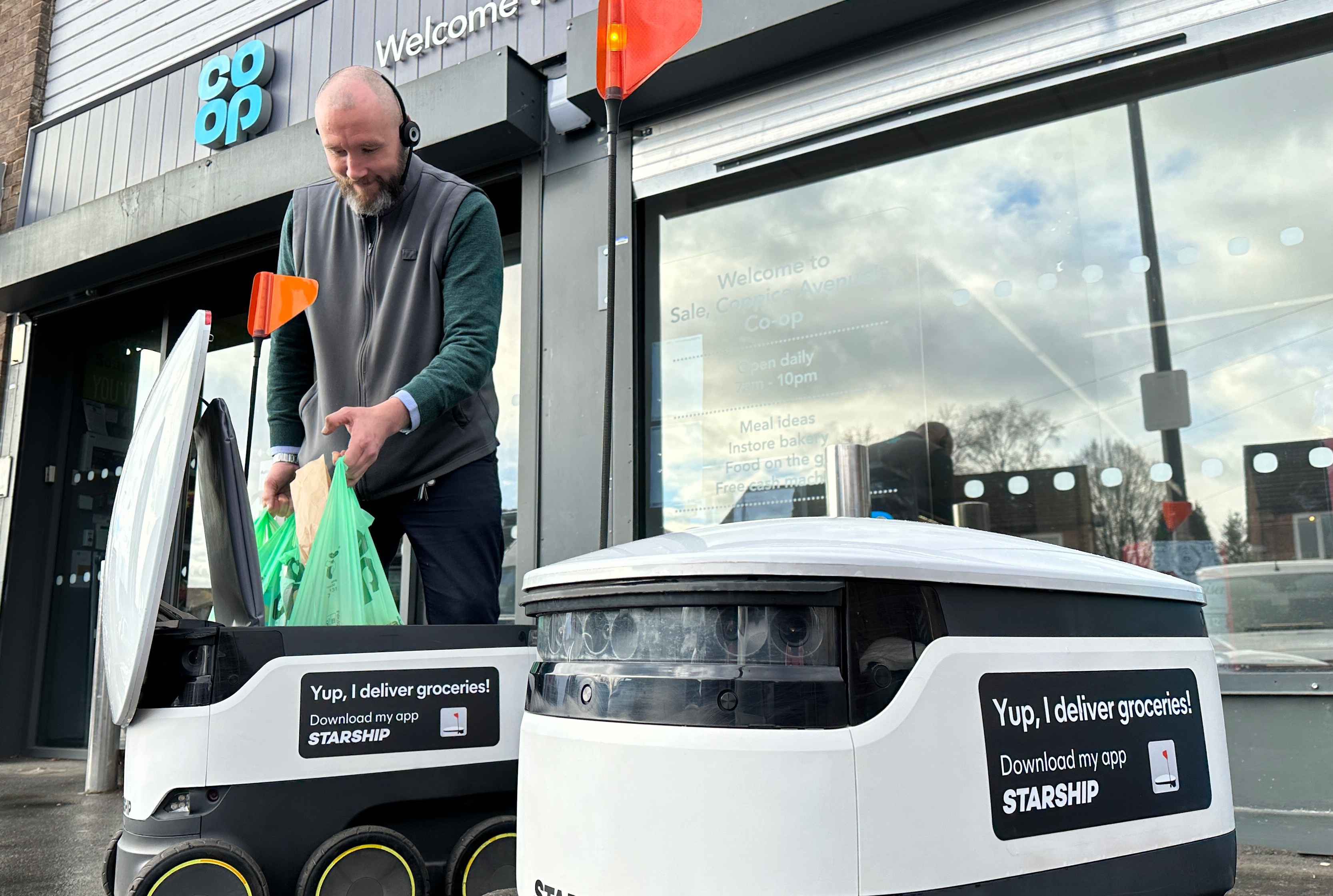Robot delivery company Starship Technologies has expanded its partnership with Co-op.
The business is now delivering groceries for the retailer in Greater Manchester, having already rolled out the technology in Milton Keynes, Northampton, Bedford, Cambridge, and Leeds.
Orders are made through the Starship food delivery app and groceries picked at local Co-op stores.
The new Greater Manchester service will initially be available to 24,000 residents across 10,500 households.
“We are very pleased to offer the benefits of autonomous delivery to thousands of residents in Greater Manchester from today and continue our expansion in the north of England," said Andrew Curtis, UK operations manager, Starship Technologies. "The robots provide ease and convenience for people, while also making a positive contribution to reducing congestion and carbon emissions."
In December Co-op announced that it would trial autonomous deliveries in Leeds.
Launched as a three-month pilot in the Adel and Tinshill areas of Leeds, 20,000 residents were be to order groceries though the Starship app to have them delivered from nearby Co-op branches on Spen Lane and Otley Road.
Commenting on the expanded partnership, Chris Conway, e-commerce director at Co-op said: “We are committed to exploring new and innovative ways to increase access to our products and services, and delighted to be able to roll-out autonomous robots to provide additional online flexibility and choice in Greater Manchester.”
Latest News
-
The top technology trends to expect in 2026
-
The most read National Technology News stories of 2025
-
Lyft and Uber sign deals with Baidu for robotaxi trial in London
-
Nextdoor launches AI-driven self-serve ads platform for small businesses
-
Italy's antitrust fines Apple €98.6m over alleged App Store dominance
-
Visa partners with UAE real estate firm to launch voice-enabled agentic commerce payments
The future-ready CFO: Driving strategic growth and innovation
This National Technology News webinar sponsored by Sage will explore how CFOs can leverage their unique blend of financial acumen, technological savvy, and strategic mindset to foster cross-functional collaboration and shape overall company direction. Attendees will gain insights into breaking down operational silos, aligning goals across departments like IT, operations, HR, and marketing, and utilising technology to enable real-time data sharing and visibility.
The corporate roadmap to payment excellence: Keeping pace with emerging trends to maximise growth opportunities
In today's rapidly evolving finance and accounting landscape, one of the biggest challenges organisations face is attracting and retaining top talent. As automation and AI revolutionise the profession, finance teams require new skillsets centred on analysis, collaboration, and strategic thinking to drive sustainable competitive advantage.
© 2019 Perspective Publishing Privacy & Cookies







Recent Stories